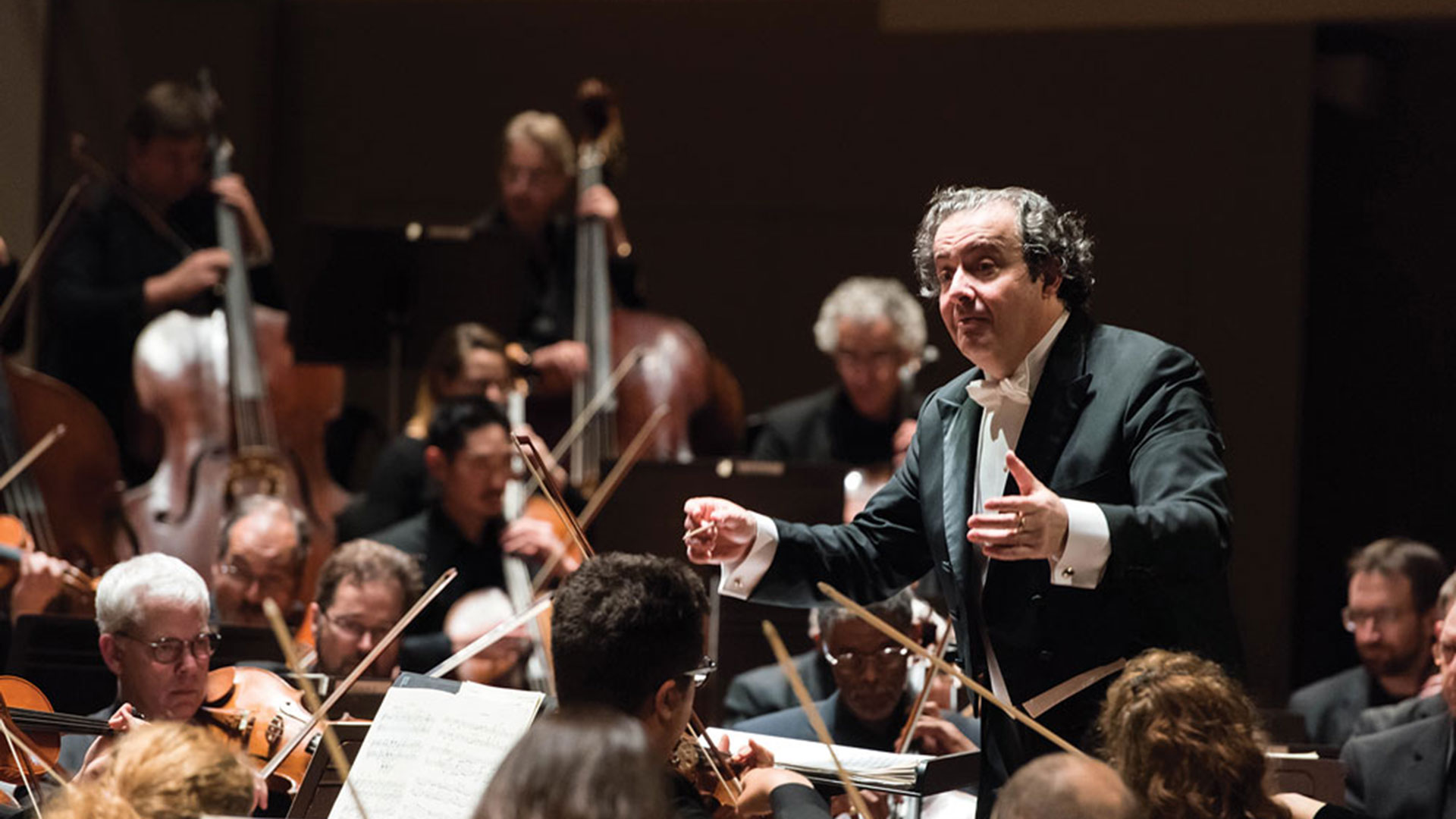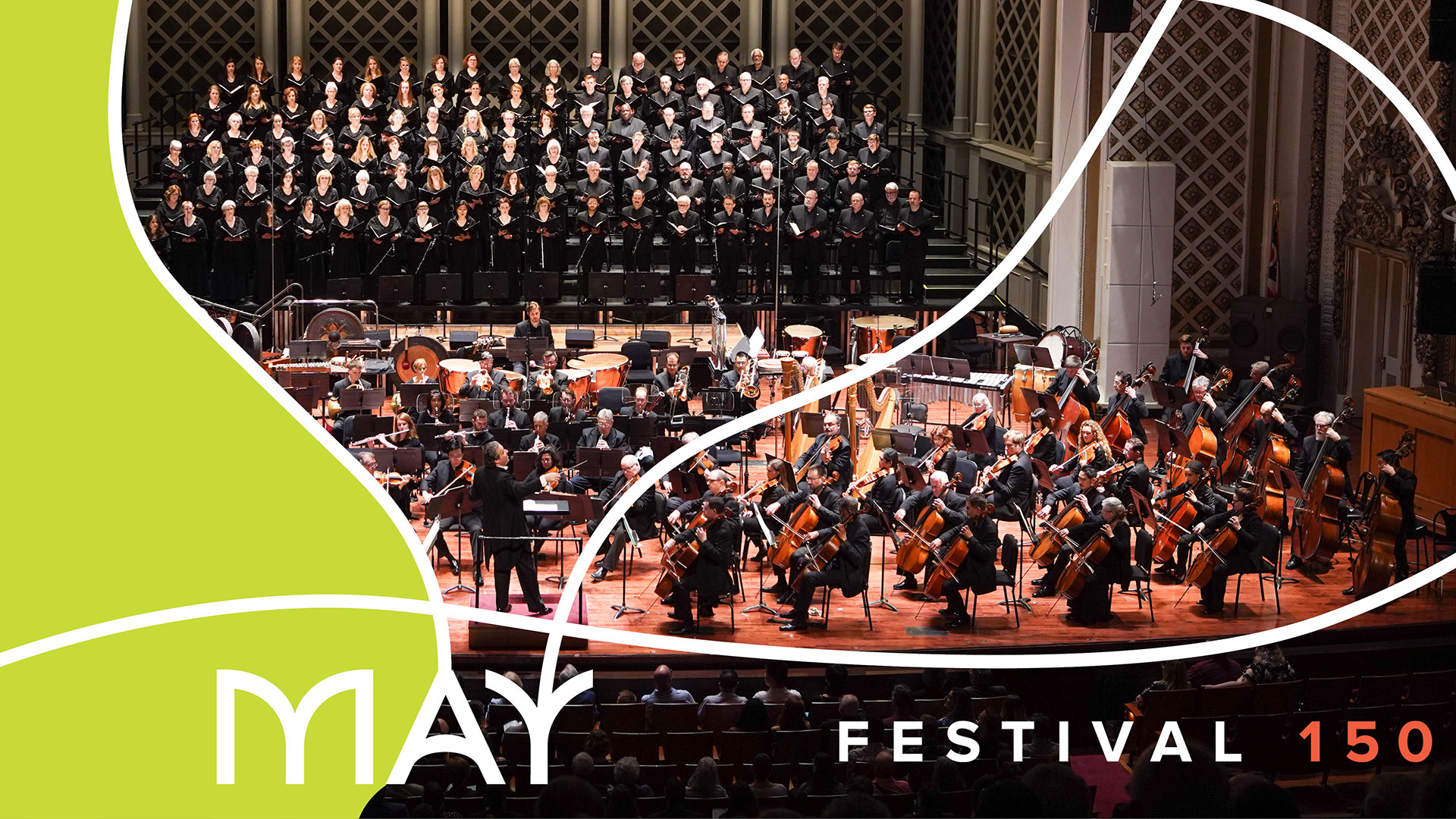

May Festival's 150th Anniversary
You have to admit, they had a great excuse. When J.S. Bach’s Magnificat received its U.S. premiere at the May Festival in 1875, the organizers couldn’t exactly invite the composer on stage to take a bow.
By Looking Backward, May Festival Springs Forward
The story of the May Festival is, in some ways, the story of Cincinnati itself. At the time the Festival was founded, Cincinnati was a booming city of nearly 250,000, its perch at the crossroads of America making it a crucible for industry and significant wealth. The city already hosted scores of amateur choirs—disproportionately many for a city of its size—and its first music school, the Cincinnati Conservatory of Music.
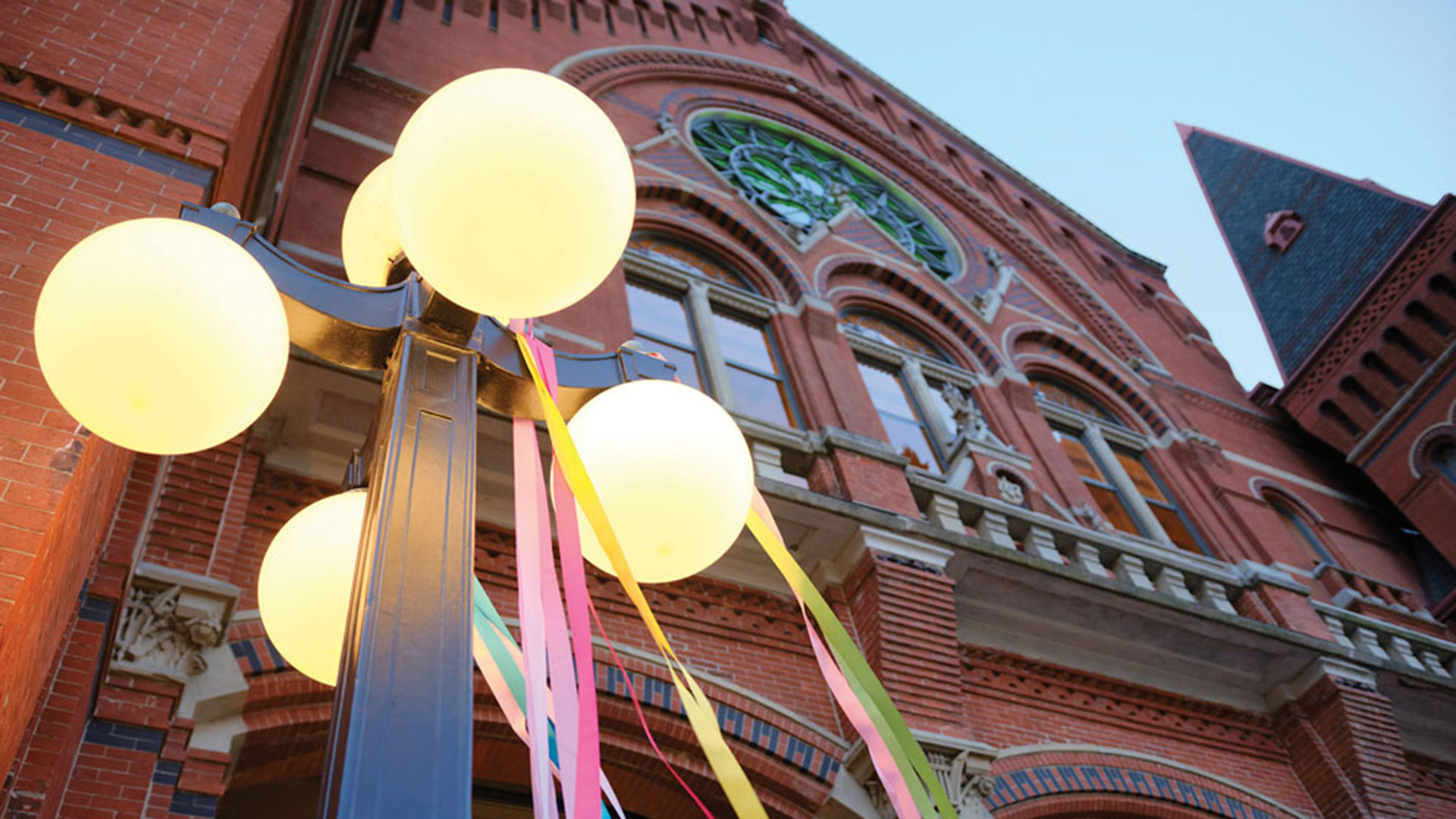
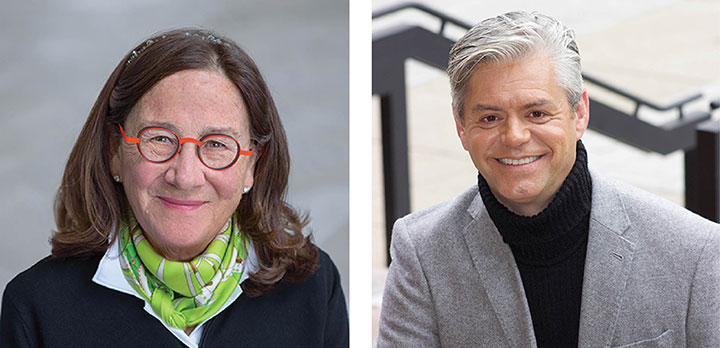
MAY FESTIVAL 150
Greetings from the Board Chair and Executive Director
On behalf of the May Festival, May Festival Chorus and the Cincinnati Symphony Orchestra, we are honored and excited to present the May Festival’s 150th season, which is poised to be our biggest season yet!
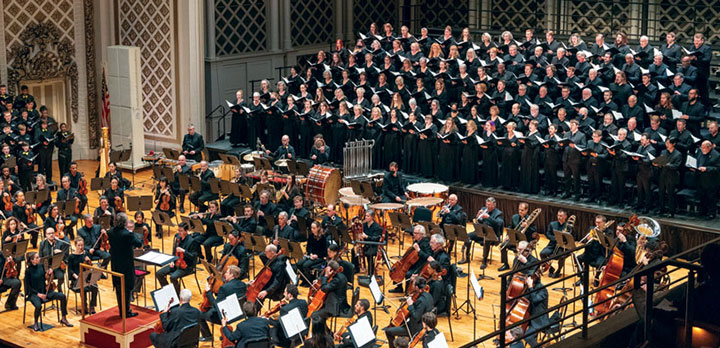
MAY FESTIVAL 150
Kindred Musical Spirits
Apart from their given name, composers James MacMillan and James Lee III have a couple of other things in common. First is a shared background in both orchestral and choral music; second is a connection to conductor Juanjo Mena dating back to 2012.
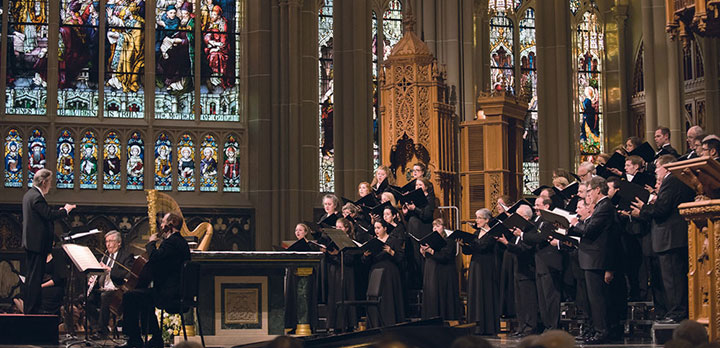
MAY FESTIVAL 150
James Conlon reflects on tradition, legacy and the music of Julia Adolphe
“It was always important for me to respect the legacy,” says James Conlon, reflecting on his record 37 seasons as May Festival Music Director. “There’s always a polemic between looking forward and looking back, but for me the May Festival’s tradition of defending the choral repertory outweighed almost everything else.”
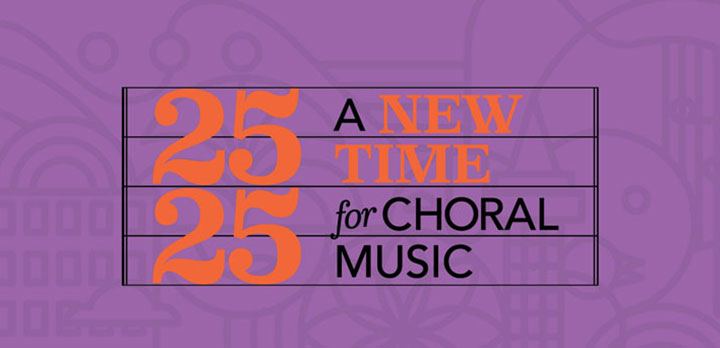
MAY FESTIVAL 150
25 for 25 A New Time for Choral Music
The May Festival devised a brilliant initiative to celebrate its 150-year history of commissioning new choral music, and its ties with the area’s choruses: “25 For 25: A New Time for Choral Music.” The culminating event was presented at Christ Church Cathedral on March 19 and was groundbreaking on many fronts.
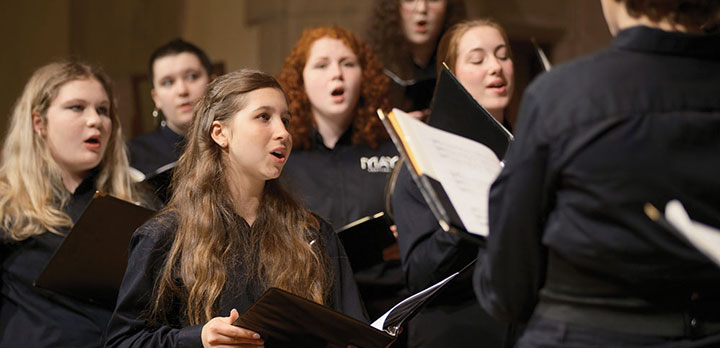
MAY FESTIVAL 150
May Festival Youth Chorus: Sundays are for Singing
For many high school students, Sundays are spent catching up on homework, spending time with friends, and prepping for the week of school ahead of them. However, for a select group of Cincinnati teens, Sundays are for singing.
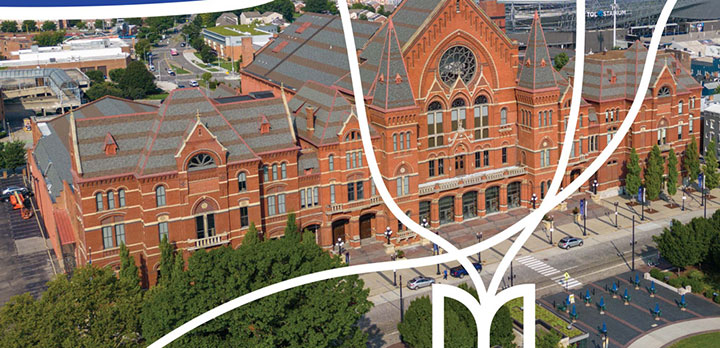
MAY FESTIVAL 150
Beginnings of the Cincinnati May Festival and Music Hall
Cincinnati’s famous May Festival, first held in 1873, is a unique mixture of choral traditions. While the artistic forces were almost entirely German, the administrative team that planned the event was mostly of English descent. Cincinnati’s successful 1870 Saengerfest, with its 1,800 singers, was certainly a hometown model for the May Festival, but the tone of the event came from the spectacularly large, but well-mannered, display of the massed-choir traditions of English festivals in Leeds and elsewhere. The festive social component of the German festivals, complete with food and drink, hasn’t been a regular part of the May Festival. At the time of this writing, the Festival is 150 years old and has been a continuous event since its inception in 1873. Until 1967, the May Festival was held every two years with only a few exceptions, but since then it has been given every year.
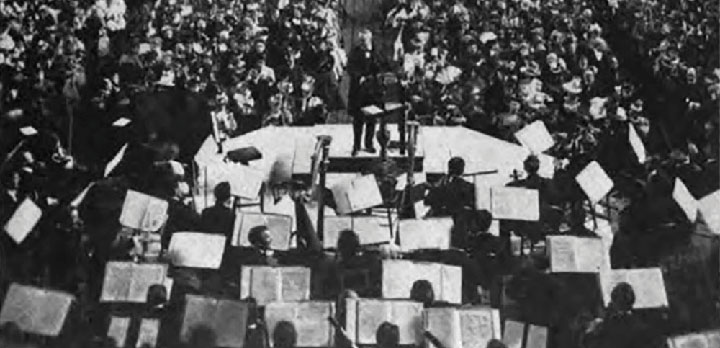
MAY FESTIVAL 150
Cincinnati's Modern Musical Landscape
The formation of the May Festival in 1873 catalyzed what is today’s culture of arts and music in Cincinnati and put the City of Cincinnati on the map as a hub for music and art. After the first May Festival, the Chicago Tribune wrote, “the result of that festival to-day is, that Cincinnati is the first musical city of the West.” Other arts and music organizations quickly followed.

MAY FESTIVAL 150
Full Issue
View the Full Issue
